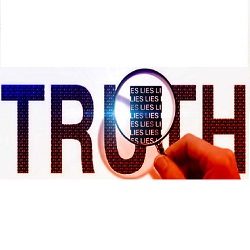
Hi Udo
I bumped into the site www.biblepages.net a few weeks ago and it will be highly appreciated if you would care to have a quick look at it for commentary purposes.
I was born and raised in the NG church and subsequently been exposed to Charismatic movements for most of the past 40 years of my life during which more questions were being raised rather than answers being received.
The biblepages web site has led me to conclude that possibly, for the most part, the doctrines that I and millions of others were exposed to, could be very wrong and misleading.
Your comments against his articles on the saints, the rapture, and the Church according to scripture will be much appreciated.
If these studies and conclusions are legitimate, then probably close to all Christians/believers over the past 2000 years have been grossly misled with wrong doctrine due to the vast number of very serious Scriptural translation errors that were mostly purposed by man.
It certainly appears that something very seriously has gone wrong if we consider the apostasy of the commercialism of churches, especially with the very popular prosperity dogma of nowadays.
Kind regards
Smithy
Hi Smithy
I have spent a couple of hours on the website you mentioned and although I haven’t studied the articles exhaustively, I will share some of my comments as you’ve asked.
Let me begin by saying that the author makes a few very interesting points (on different issues) and there is much that I would agree with. I also commend the author’s advice and challenge that everybody should study the Bible for themselves and not unthinkingly accept what preachers and churches teach. I further appreciate what seem to be the author’s sincerity and openness to explore his writings further.
With that being said, I do have quite a few misgivings about the website and its content.
Firstly, I do have a problem (although minor) with the anonymity and total lack of references in the site. While I would agree that a person’s credentials (or lack thereof), educational background and religious background, do not necessarily disqualify them from having thoughtful opinions or significant insight, neither is it completely irrelevant.
Now, the author takes pain to mention that he simply looks at things from a ‘biblical perspective’ as opposed to a ‘dogmatic’ or ‘religiously indoctrinated’ way. I take issue with such a sentiment for it is much too simplistic. The author seems ignorant of the fact that nobody approaches their study of the Bible from a completely unbiased and doctrinally neutral perspective. Of course, it should always be our aim to uncover the true meaning of the Biblical text and the intended meaning of its author, but the fact is that we are all influenced by many different factors and previous learning when we read and study any text. We can and do also learn a lot from other Christians who have studied the Bible and thought about its meaning, and to give the impression that one has come to certain conclusions all on one’s own, would be rather disingenuous.
Furthermore, there seems to be confusion of what ‘doctrine’ or ‘dogma’ actually is. It isn’t necessarily something unbiblical that automatically skews the way we interpret Scripture. Doctrinal formulations or creedal statements (see for e.g. the Apostolic Creed or Nicene Creed) are often simply the distilled and concise thoughts of fallible Christians who have made a serious effort to understand what the Bible teaches on different matters. While it can be true that you so blindly accept a certain doctrine that you then go and read into Scripture what Scripture doesn’t say, doctrine is often a way of actually helping to correctly interpret scripture.
I do need to mention, though, that I do get a sense of where the author is coming from. It seems that much of his writing is aimed at and in reaction to Catholicism. Whether the reaction is to actual Catholic teaching or misrepresentations thereof, needs to be discerned, but I get the impression that much of what is written is a reaction to nominal and dead religiosity (also apostasy and commercialism as you noted) – and I can therefore appreciate the motive for doing so.
Okay, these are some of my preliminary thoughts. The actual teaching that the author of biblepages.net offers, we can discuss where there is specific need to do so. The author of biblepages.net really is often less than clear on many issues. I will quickly refer to the three issues you mentioned with links to very short answers, but which I find responsible and biblical (and which may or may not agree with the author of biblepages.net):
- What are Christian saints according to the Bible?
- On the Rapture – see Pretribulationism and Posttribulationism and Midtribulationism (Christians have always disagreed on this matter)
- What is the church? and Which church is the true church?
For further study on these and other issues of what Christians believe (and sometimes disagree on) there are several very good books on systematic theology, see http://www.goodreads.com/shelf/show/systematic-theology (I would recommend, Grudem, Erickson and McGrath)
Finally, I don’t see any reason to think that what Christians have believed over the past 2000 years has now suddenly been corrected by biblepages.net! I also reject the notion of any serious translation errors in today’s Bibles. We can gladly discuss the methodology of Bible translation and why we have so many different versions, but it is my contention that most modern translations give us a very accurate rendition of what was originally written down in the Greek and Hebrew – see for example my article, God se Woord en Bybelvertalings.
Paul, you are welcome to correspond further and I will assist where I can.
Kind regards
Udo

Leave a Reply